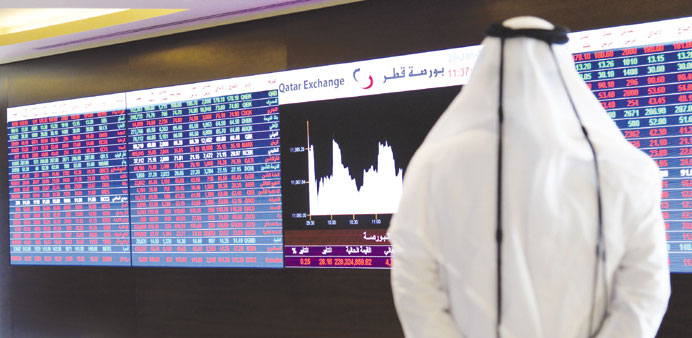A raft of positive factors - including MSCI upgrade, strong macroeconomic growth and huge capex for infrastructure projects - has been lending support to the QSE which has already touched a new nine-year high near 13,000 points.
By Santhosh V Perumal/Business Reporter
The listing of Mesaieed Petrochemical Holding Company (MPHC) is expected to prompt other companies to float on the Qatar Stock Exchange (QSE), according to global consultant PricewaterhouseCoopers (PwC).
Initial public offerings (IPO) in the Gulf Co-operation Council (GCC) countries in the first quarter (Q1) improved year-on-year in terms of value, but volumes remained relatively stable at two offerings, PwC said in a report.
The total proceeds from the two IPOs in the GCC - MPHC and Saudi Marketing Company - were higher by 183% compared with Q1 2013.
“Although we have seen an increase in values in Q1 2014, we are still not seeing significant IPO activity on our regional markets,” according to Steve Drake, head of PwC’s capital markets in the Middle East region.
The QSE saw its first IPO since 2010 with the listing of MPHC raising $881mn. The offering received a strong response from investors with a five-time oversubscription. “It is hoped that the MPHC listing will act as a catalyst for other companies to consider float on the QSE,” the report said.
Doha Global Investments, Barwa Bank and QInvest have already announced their listing plans, but have not proceeded further.
It is expected that the QSE may witness the listing of more companies - either through IPO or otherwise - once the formal upgrade to “emerging market” by global index compiler MSCI takes effect from next month.
A raft of positive factors - including MSCI upgrade, strong macroeconomic growth and huge capex for infrastructure projects - has been lending positive support to the QSE, whose index has already touched a new nine-year high near 13,000 points.
About the public debt markets, PwC said during Q1 2014, Kuwait Projects Company issued a $500mn bond that received a positive response from investors and was six times oversubscribed. In the UAE, ADCB Finance Cayman issued a $750mn bond in March. The Central Bank of Kuwait issued five government bonds this quarter each amounting to about $177mn and maturing in one year.
The GCC sukuk market was dominated by corporate issuances from Saudi Arabia-based companies and sovereign issuances in Qatar. The Saudi Arabian National Commercial Bank issued a $1.33bn sukuk in February, making it the country’s largest issuance by a financial institution. Islamic Development Bank and Saudi Electricity Company issued $1.5bn and $1.2bn sukuk respectively.
On the sovereign front, the Qatar Central Bank was a key player issuing two sukuk in January in the amount of $1.92bn and $1.1bn.
“Public debt issuances continued to be strong in Q1 2014. The challenge we will see going forward is whether issuances will be sustained at similar levels given the apparent availability of conventional bank debt in the regional markets,” Drake said.

